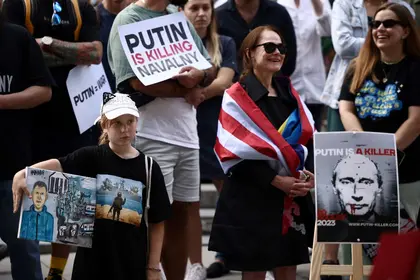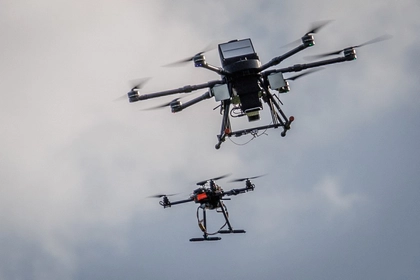Who is to blame? What is to be done? These are questions that have shaped the debates of Russian opposition leaders since the middle of the 19th century. They continue to be central for the political activists who have escaped abroad from Vladimir Putin’s regime.
JOIN US ON TELEGRAM
Follow our coverage of the war on the @Kyivpost_official.
However, the narratives currently offered by Russians in exile do little to contradict the aphorism often heard across Ukrainian society that “there are no good Russians”. The major reason is the apparent inability of the Russian opposition to accept responsibility both for the current state of affairs in their country and for its future.
A common claim is that the war in Ukraine is exclusively Putin’s war.
This statement obviously contradicts the reality that hundreds of thousands of Russians are occupying Ukrainian territory with weapons in their hands. There are thousands of Russians who have committed atrocities in Ukraine in parallel with the crimes of Putin and his administration.
This represents an attempt to dodge responsibility by shifting blame to the leader. It also suggests Russians are unable to grasp what happens in wars or are deprived of empathy and ready to kill Ukrainians just for money. The most neutral depiction of Russians in this narrative is that they don’t care.
Similar discussions dominate replies to the second question — what is to be done? Instead of debating the example of post-Nazi Germany, and its path back to the community of civilized countries, we hear narratives about making peace without accepting common guilt, common responsibility, and repentance.

Russia Tries to Sabotage Moldova’s European Ambitions as It Did for Georgia and Belarus
It is said that Russians should not be humiliated by sanctions, since they too are victims. There are different variations of this story, one of which emphasizes that sanctions are the major factor shaping a geostrategic alliance between Russia and China — against the interests of the collective West.
On a micro-level, this thesis also says it is wrong to humiliate “ordinary Russians” by denying them visas, and educational programs and stopping them from taking personal belongings and vehicles to the European Union. The fundamental reasons for all these limitations are usually left out of the narrative.
Another line is that “the German experience” is not required to overcome fascism in Russia. Proponents refer to the aftermath of dictatorships in Spain, Portugal, and Greece, where internal reconciliation helped society back to normality. The problem is that “internal reconciliation” echoes Putin’s claim of “one nation” when he speaks about Russians and Ukrainians.
The use of such arguments suggests to Ukrainian critics that even people who identify as the Russian opposition are unable to understand that Ukraine is a separate and independent state, with its own culture.
Reparations are sometimes mentioned, but they are usually referred to as a limited symbolic gesture. There is no wider debate about re-thinking and re-establishing Russian national identity.
The reasons for the Russian war in Ukraine lie in the imperial and chauvinistic identity of Russian society. From this perspective, there is no Russian opposition, as even those who claim this status still share the same identity and approaches.
It is important for the Russian opposition to start a serious debate about the path that led to their country becoming an international pariah. It will involve discussions about painful issues, such as the fascist nature of the current Russian state and the imperialist nature of Russian society.
The only way to overcome both, if Russia wants to return to civilization, is to follow the path of Germany and accept responsibility and collective guilt.
This is the path of repentance and punishment and should be at the core of debates among the Russian opposition, instead of its current focus on the “humiliating” nature of EU bans and sanctions.
Oleksandr Moskalenko is an academic researcher focusing on European politics. He is an in-residence fellow at the Center for European Policy Analysis (CEPA, Washington, DC). He has a Ph.D. in European Law and previously lived in the Ukrainian city of Kharkiv.
Europe’s Edge is CEPA’s online journal covering critical topics on the foreign policy docket across Europe and North America. All opinions are those of the author and do not necessarily represent the position or views of the institutions they represent or the Center for European Policy Analysis.
This article was first published by CEPA on Oct. 2, 2023. Read the original here.
The views expressed are the author’s and not necessarily of Kyiv Post.
You can also highlight the text and press Ctrl + Enter






